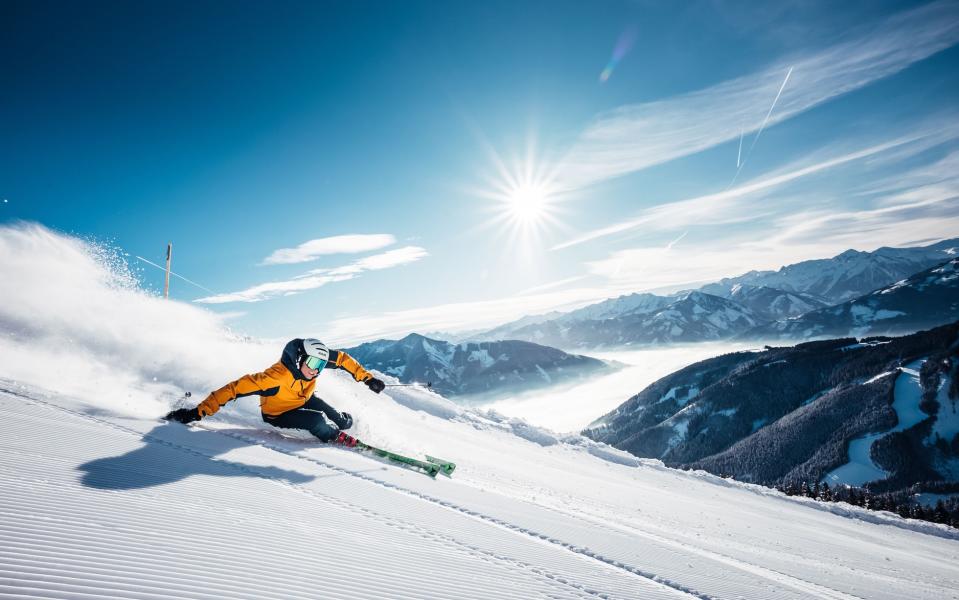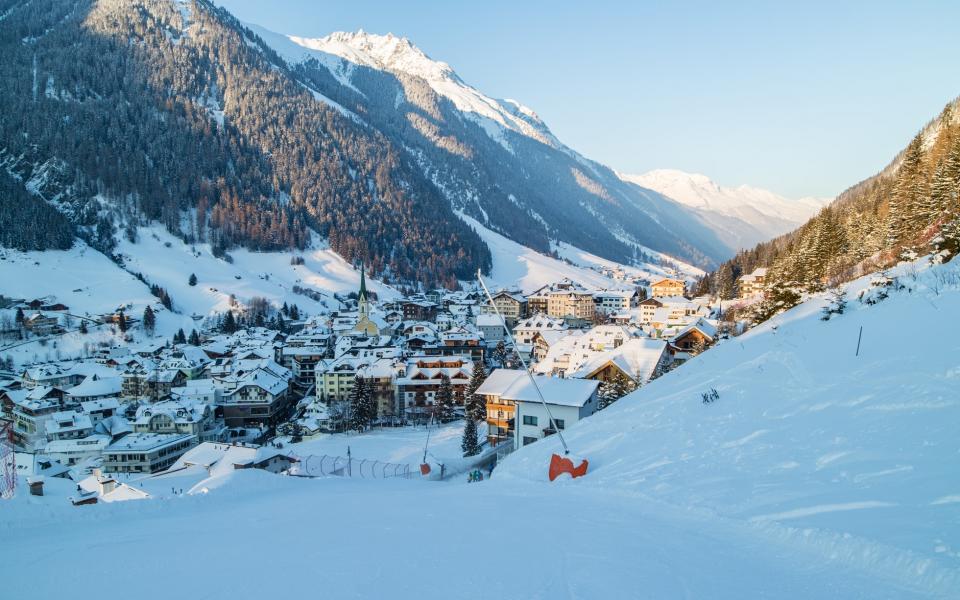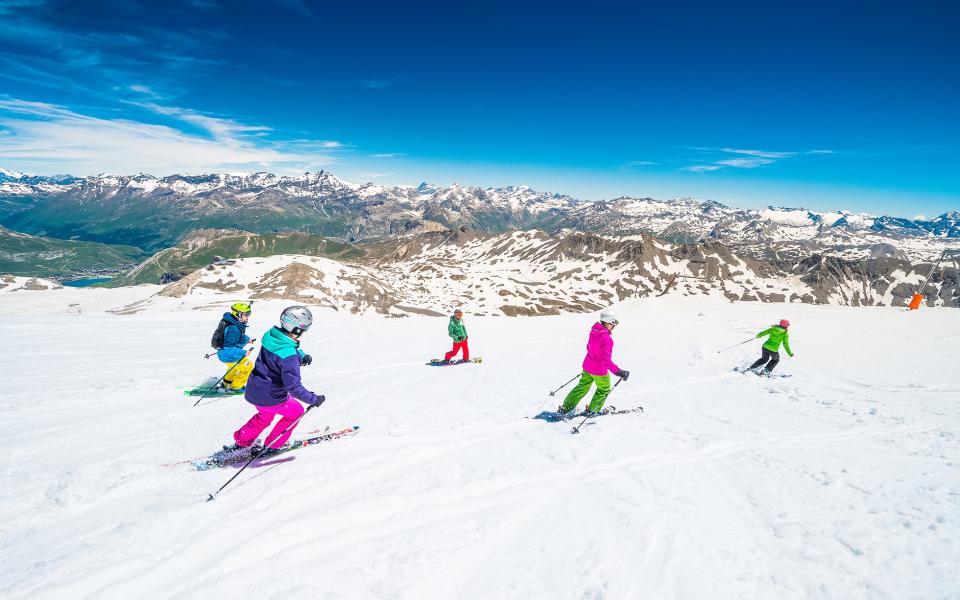Covid-19’s impact on the ski industry – experts share their thoughts

Nervous holidaymakers need refund guarantees and flexible bookings
While keen travellers in the UK wait with baited breath to find out when they will be able to go on holiday again, with the beaches of Europe reopening and the peak summer season looming, Britain’s skiers and snowboarders are keen to know when, how and where they’ll be able to return to the slopes.
Experts have begun to piece together the proposed anatomy of Covid-19 a ski holiday but still there remains a lot of uncertainty around how things will work next winter.
'Navigating The New Normal' was the title of the latest conference held by the Mountain Trade Network (MOTEX), which is made up of over 130 companies, brands and individuals who work in the mountain and snow-sports industry.
The two-day conference was held virtually last week and saw over 60 representatives from around the world tune in, hoping to find answers to some of the most burning questions and to begin to plan for the ski holidays of the future.
Consumer trust, logistical challenges and legal frameworks were all topics of discussion, with key themes appearing across the two days, all supported by the latest research carried out by MOTEX of a dedicated pool of skiers and snowboarders who have regularly taken ski holidays over the past three years.
“Many sectors of the travel industry are coming together to rebuild in the wake of the havoc caused by the coronavirus pandemic, and it’s been gratifying to see the snowsports industry looking to collaborate in so many ways too,” said James Gambrill, founder and director of MOTEX.
As the future of ski holidays, indeed all foreign travel, remains uncertain, here are the most pressing issues the industry currently faces as the pandemic threats to change the shape of ski holidays forever.
Fear to commit
92 per cent of the skiers and snowboarders surveyed believe Covid-19 will have some, if not a significant, impact on their future holidays in the mountains. With this comes a level of nervousness, fear and anxiety about what the future might hold.
While there’s a proportion of the market steadfast in their dedication to going on a ski holiday the number of those nervous to do so is increasing – 34 per cent of skiers in May were undecided whether they’ll go on holiday next winter, compared to 11 per cent in April.

“Snowsports holidays tend to have more complex elements than many other areas of travel, and communicating with skiers and snowboarders on how the industry can keep them safe and still deliver amazing mountain experiences is key to building trust for the coming season,” said Gambrill.
Among the suggestions on how to reinstate confidence from the MOTEX panel were honest and open marketing campaigns from resorts, informed staff to answer customer questions, which are predicted to increase twofold, over the phone and online before they book and reassurance that operators and resorts are prepared to be flexible if the travel disruption continues.
Importance of guarantees
While discounts, added value in the form of free lift passes and snow-sure conditions remain important booking triggers for skiers and snowboarders, the latest research from MOTEX has found that offering coronavirus insurance and the guarantee of a refund are now major considerations for those looking at booking a ski holiday.
It comes as no surprise as thousands of British snow-sport fans had their winter holidays cancelled at short notice due to the pandemic – many then struggled to secure refunds from operators.
As people look for security around their holiday bookings there has also been an increase in the number of people who have said they will book with a tour operator, rather than independently, in the future. Compared to a 63 per cent to 37 per cent split in favour of tour operators in 2019, the preference has increased further with 79 per cent of those surveyed saying they will book with a trusted company in the coming winters.
“I think trust has taken a big hit but certain agents and operators that have met their legal obligation to give a refund within 14 days have come out of this really well and trust has grown with those companies,” said Steve Hull, managing director at Travel Booker.
With this growth in demand for package trips comes an increased importance for bonding with ABTA and ATOL, refund policies and customer support, which respondents all cited as new things they’ll consider when choosing who to book with – rather than easy to use websites and past experience, which were both previously key factors.
“There will be some steps needed to rebuild trust and part of the recovery phase will be how we restore people’s confidence in travel” said Luke Petherbridge, head of public affairs at ABTA, who explained guidance and documents are being put together for its members to share with their customers to reassure them of what they’re entitled to.
Need for collaboration
“Working together is going to be key – everybody is in the same boat,” said Stephie Dijkman, commercial director in the French resort of Tignes.
During a session discussing the practicalities of getting skiers back on the slopes those in the industry stressed the importance of having all the relevant information from the authorities before they can plan ahead – something French resorts say has been made available to them quickly by the government there. As individual countries begin to lift border restrictions and welcome back tourists those in the industry are keen to learn from each other, suggesting knowledge of what’s happening in neighbouring countries could lead to a more streamlined, and less daunting, experience for those visiting the mountains.

Ideas shared across the two days include transfer companies leaving the middle seat and front seats in minibuses free and vehicles being cleaned more regularly plus resorts recruiting a specific person to manage the logistics of operating during the pandemic. Ski schools are also being encouraged to collaborate too, so there can be standard guidelines implemented, such as smaller group sizes and video feedback rather than face-to-face.
Summer pilot scheme
The experience of being in the mountains looks set to be significantly altered by the time the snow starts falling in Europe. As resorts prepare to welcome tourists over the summer many are using the opportunity to pilot schemes that will also come into play during the lucrative winter season.
“We’re looking forward to seeing what happens during the summer and think there will be a lot of best practises that will come together and begin to be shared, as we learn more about the virus,” said Simon Holmes, commercial director of Ski-Lifts. The southern hemisphere ski season is also pegged to provide inspiration for resorts in Europe – slopes in Australia and New Zealand look set to open in the coming weeks, with social distancing measures in place.

Accommodation cleanliness and health and safety is another major factor that resorts must perfect before welcoming skiers next winter – it has risen in importance in MOTEX’s consumer feedback. In May’s survey, when asked what impact they thought Covid-19 would have on their choice of accommodation in coming winters 94 per cent agreed there would be some, if not significant impact. This rose dramatically in the space of a month – when asked the same question in April only 77 per cent thought they’d have to reconsider where they stay.
Making changes to accommodation, with more regular cleaning schedules for example, is in the top three suggestions for what the industry can do to encourage skiers to return to the slopes. Others also suggest changes to infrastructure in resorts, such as lift capacities and cleaning stations, will also be important factors in reinstating visitor confidence – luckily, as ski lifts are classed as public transport many have already begun to start turning again, giving resorts time to implement new measures before the winter.
Last-minute flexibility
In 2019 the majority (49 per cent) of skiers booked their trip to the slopes between three and six months before they travelled, however the tides are changing as coronavirus makes the future of international travel uncertain. The statistics show booking less than a month in advance in the future could be a more popular approach.
In April when uncertainty was high, 38 per cent of respondents said they’d leave making travel plans to the last minute in the future, compared to 33 per cent booking less than three months out and 33 per cent between three and six months. This last-minute figure dropped to 27 per cent in May as people began to accept life with the virus, but if the pandemic continues to cause a turbulent time for the travel industry, with the potential for a second peak, operators and businesses need to be prepared, with the ability to handle last-minute requests, whilst also giving the customers the guarantees and flexibility they’re keen to see.
“Taking a flexible approach will be key so you can make adjustments and evolve,” said Tom Saxlund, founder and owner of New Generation ski school.

